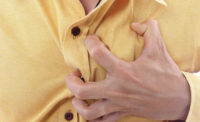According to the Mayo Clinic, peripheral neuropathy, a result of nerve damage, often causes numbness and pain in your hands and feet. People typically describe the pain of peripheral neuropathy as tingling or burning, while they may compare the loss of sensation to the feeling of wearing a thin stocking or glove.
Peripheral neuropathy can result from problems such as traumatic injuries, infections, metabolic problems and exposure to toxins. One of the most common causes is diabetes.
In many cases, peripheral neuropathy symptoms improve with time — especially if the condition is caused by an underlying condition that can be treated. A number of medications often are used to reduce the painful symptoms of peripheral neuropathy.
The nerves of your peripheral nervous system send information from your brain and spinal cord (central nervous system) to all other parts of your body and back again.
Nerves that may be affected by peripheral neuropathy include:
Sensory nerves that receive sensations such as heat, pain or touch
Motor nerves that control how your muscles move
Autonomic nerves that control functions such as blood pressure, heart rate, digestion and bladder function
Most commonly, peripheral neuropathy starts in the longest nerves — the ones that reach to your toes. Symptoms vary, depending on which types of nerves are affected. Signs and symptoms may include:
Gradual onset of numbness and tingling in your feet or hands, which may spread upward into your legs and arms
Burning pain
Sharp, jabbing or electric-like pain
Extreme sensitivity to touch, even light touch
Lack of coordination
Muscle weakness or paralysis if motor nerves are affected
Bowel or bladder problems if autonomic nerves are affected
Peripheral neuropathy may affect one nerve (mononeuropathy), two or more nerves in different areas (multiple mononeuropathy) or many nerves (polyneuropathy).
When to see a doctor
Seek medical care right away if you notice any unusual tingling, weakness or pain in your hands or feet. Early diagnosis and treatment offers the best chance for controlling your symptoms and preventing further damage to your peripheral nerves. If your symptoms interfere with your sleep or you feel depressed, your doctor or pain specialist may be able to suggest treatments that can help.
Causes
It's not always easy to pinpoint the cause of peripheral neuropathy, because a number of factors can cause neuropathies. These factors include:
Alcoholism. Many alcoholics develop peripheral neuropathy because they make poor dietary choices, leading to vitamin deficiencies.
Autoimmune diseases. These include lupus, rheumatoid arthritis and Guillain-Barre syndrome.
Diabetes. When damage occurs to several nerves, the cause frequently is diabetes. At least half of all people with diabetes develop some type of neuropathy.
Exposure to poisons. These may include some toxic substances, such as heavy metals, and certain medications — especially those used to treat cancer (chemotherapy).
Infections. Certain viral or bacterial infections can cause peripheral neuropathy, including Lyme disease, shingles (varicella-zoster), Epstein-Barr, hepatitis C and HIV/AIDS.
Inherited disorders. Examples include Charcot-Marie-Tooth disease and amyloid polyneuropathy.
Trauma or pressure on the nerve. Traumas, such as motor vehicle accidents, falls or sports injuries, can sever or damage peripheral nerves. Nerve pressure can result from using a cast or crutches, spending a long time in an unnatural position or repeating a motion many times — such as typing.
Tumors. Growths can form directly on the nerves themselves, or tumors can exert pressure on surrounding nerves. Both cancerous (malignant) and noncancerous (benign) tumors can contribute to peripheral neuropathy.
Vitamin deficiencies. B vitamins — B-1, B-6 and B-12 — are particularly important to nerve health. Vitamin E and niacin also are crucial to nerve health.
Other diseases. Kidney disease, liver disease and an underactive thyroid (hypothyroidism) also can cause peripheral neuropathy.
Risk factors
Peripheral neuropathy risk factors include:
Diabetes, especially if your sugar levels are poorly controlled
Alcohol abuse
Vitamin deficiencies, particularly B vitamins
Infections, such as Lyme disease, shingles (varicella-zoster), Epstein-Barr, hepatitis C and HIV/AIDS
Autoimmune diseases, such as rheumatoid arthritis and lupus, in which your immune system attacks your own tissues
Kidney, liver or thyroid disorders
Exposure to toxins
Repetitive physical stress, possibly from occupational activities
Treatments and drugs
One goal of treatment is to manage the condition causing your neuropathy. If the underlying cause is corrected, the neuropathy often improves on its own. Another goal of treatment is to relieve the painful symptoms.
Medications
Many types of medications can be used to relieve the pain of peripheral neuropathy, including:
Pain relievers. Mild symptoms may be relieved by over-the-counter pain medications. For more-severe symptoms, your doctor may recommend prescription painkillers. Drugs containing opiates, such as codeine, can lead to dependence, constipation or sedation, so these drugs are generally prescribed only when other treatments fail.
Anti-seizure medications. Drugs such as gabapentin (Gralise, Neurontin), topiramate (Topamax), pregabalin (Lyrica), carbamazepine (Carbatrol, Tegretol) and phenytoin (Dilantin, Phenytek) were originally developed to treat epilepsy. However, doctors often also prescribe them for nerve pain. Side effects may include drowsiness and dizziness.
Capsaicin. A cream containing this naturally occurring substance found in hot peppers can cause modest improvements in peripheral neuropathy symptoms. Like spicy foods, it may take some time and gradual exposure to get used to because of the hot sensation this cream creates. Generally, you have to get used to the heat before you can experience pain relief. Doctors may suggest you use this cream with other treatments.
Lidocaine patch. This patch contains the topical anesthetic lidocaine. You apply it to the area where your pain is most severe, and you can use up to four patches a day to relieve pain. This treatment has almost no side effects except, for some people, a rash at the site of the patch.
Antidepressants. Tricyclic antidepressant medications, such as amitriptyline and nortriptyline (Aventyl, Pamelor), were originally developed to treat depression. However, they have been found to help relieve pain by interfering with chemical processes in your brain and spinal cord that cause you to feel pain. The serotonin and norepinephrine reuptake inhibitor duloxetine (Cymbalta) also has proved effective for peripheral neuropathy caused by diabetes. Side effects may include nausea, drowsiness, dizziness, decreased appetite and constipation.
TherapiesTranscutaneous electrical nerve stimulation (TENS) may help to relieve symptoms. In this therapy, adhesive electrodes are placed on the skin, and a gentle electric current is delivered through the electrodes at varying frequencies. TENS has to be applied regularly.
Lifestyle and home remedies
The following suggestions can help you manage peripheral neuropathy:
Take care of your feet, especially if you have diabetes. Check your feet daily for signs of blisters, cuts or calluses. Tight shoes and socks can worsen pain and tingling and may lead to sores that won't heal. Wear soft, loose cotton socks and padded shoes. You can use a semicircular hoop, which is available in medical supply stores, to keep bedcovers off hot or sensitive feet.
Exercise. Ask your doctor about an exercise routine that's right for you. Regular exercise may reduce neuropathy pain and can help control blood sugar levels.
Quit smoking. Cigarette smoking can affect circulation, increasing the risk of foot problems and possibly amputation.
Eat healthy meals. If you're at high risk of neuropathy or have a chronic medical condition, healthy eating is especially important to ensure that you get essential vitamins and minerals. Emphasize low-fat meats and dairy products and include lots of fruits, vegetables and whole grains in your diet. Drink alcohol in moderation, if at all.
Massage your hands and feet, or have someone massage them for you. Massage helps improve circulation, stimulates nerves and may temporarily relieve pain.
Avoid prolonged pressure. Don't keep your knees crossed or lean on your elbows for long periods of time. Doing so may cause new nerve damage.



